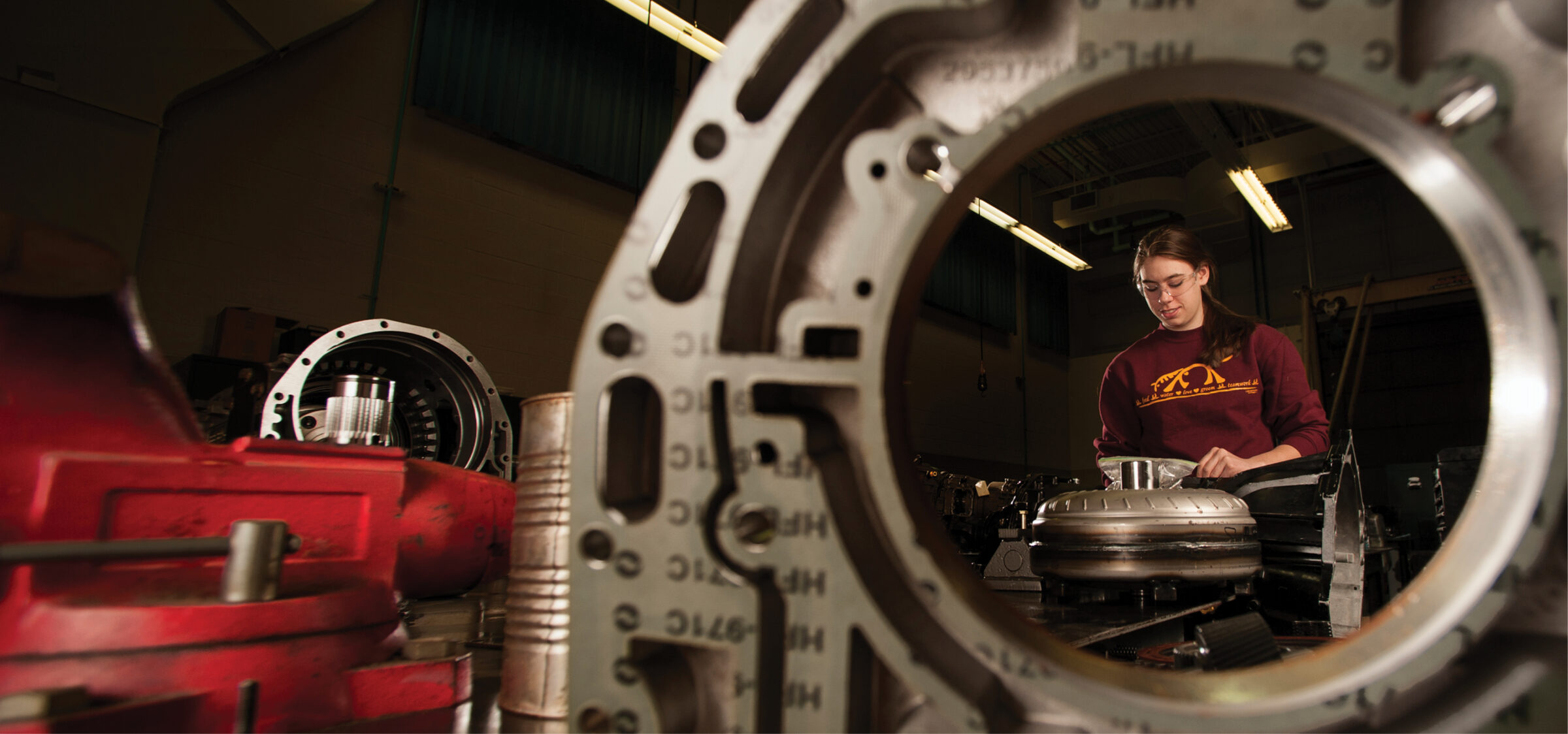You may not be able to teach an old dog new tricks, but industry leaders have the insight to teach the next generation of talent valuable skills leading them into crucial roles.
In recent years the U.S. has pivoted toward bringing manufacturing back home, a plus for strengthening our domestic supply chain and national economy. A trend has emerged of additional investment into local and state institutions to create industry-targeted programs, manufacturing a pipeline of talent up for grabs.
Modern technology and automation are transforming business operations at a rapid pace. Our nation’s college and university curriculum can’t compete against rapid automation, as mundane and outdated roles are led by computers and robots, and human roles become more technologically advanced. A polished degree from top-rated universities becomes peripheral as companies prioritize skill assets, diversifying and expanding local talent pools across the nation.
Workforce Development Flies with Higher Institutions
What was once a crop-dusting company operating in Macon, Georgia, is now one of the world’s largest airlines based in the world’s busiest airport, Hartsfield-Jackson Atlanta International Airport.
Today, Delta Air Lines remains one of the largest employers in metro Atlanta, with over 27,000 employees statewide as of 2021. But there’s room for more on the runway and developing a certificate program with Georgia State University (GSU) is opening the gate for Delta’s analytics workforce.
GSU serves as the airline giant’s foremost supplier of talent and the certificate program is run by GSU’s J. Mack Robinson College of Business. The Delta Analytics Academy (DAA) is a 24-week course for frontline operational experts.
The virtual program allows Delta employees to continue working for the duration of the program, removing barriers to advancement opportunities for frontline workers. Participants develop skills to address problem solving and data analytics capabilities on Excel, Python, SQL and Tableau. Upon completion of the certificate, each student will enter an immersive analytics internship at Delta.
“A key goal of the program is to create ‘citizen data scientists,’ successfully blending the learners’ existing functional knowledge with data analytical skills,” says Brian Jennings, associate dean of graduate programs and executive education.
“Business schools have a unique role to play in partnering with industry, and this relationship is a perfect example of that. I believe that Delta is truly onto something by creating ‘citizen data scientists’ and democratizing data science within their organization.”
Jennings notes that the program is “the most innovative and inspirational” talent development program he’s seen, as Delta evens the playing field, focusing on the skills employees have gained rather than their education background or coordinating degree. It’s a shift Jennings sees as a powerful commitment to talent retention within the company.
“In 2021, our campus went through a rebrand and that really refocused our vision to holistically and solely serve the aerospace industry.”
— Kirsten Zoller, Executive Director of Strategic Initiatives, Kansas State University
The initial pilot for the Academy, which took place in spring 2022, was limited to Atlanta-based frontline employees, with anticipation for at least 100 workers to take part. To Delta’s surprise, over 700 employees applied. Given its success, Delta plans to expand the DAA beyond Atlanta in the future, under its larger initiative Delta Data University.
Hop On
A quick flight to Kansas will take you to the city of Salina, two hours west of Topeka, where a $10 million Aerospace Innovation Ramp is being created by General Atomics and Kansas State University.
The massive gift from General Atomics Aeronautical Systems marks the largest corporate gift to an academic program in the university’s history, according to the October 2022 announcement.
For five years the two have worked on a variety of projects and design work, focused on advancing the aerospace industry.
“In 2021, our campus went through a rebrand and that really refocused our vision to holistically and solely serve the aerospace industry,” says Executive Director of Strategic Initiatives Kirsten Zoller. “With that, General Atomics recognized now is the time to really invest in the future of aerospace research, and to serve an industry that has some pretty critical issues today.”
Funding will build out a former Schilling Air Force Base site near KSU’s Salina Aerospace and Technology Campus. Zoller said as of now the university is in its final phases of facility and technology planning.
The Aerospace Innovation Ramp will encompass the future of the Kansas Immersive Technology Environment (KITE). Future students will have access to the KSU Salina Advanced Air Mobility Center of Excellence, Kansas Advanced Simulation Center, Aviation Maintenance Training Center, Advanced Composites lab and an engineering teaching facility and model factory on the site.
Working to take students out of the classroom, the Innovation Ramp will immerse them into environments that replicate industry life. Future pilots experiment in VR simulated missions, while mechanics train with materials used in creating today’s emerging systems.
With the project serving not only as an educational facility, but also a research and co-located space for other aerospace companies, students and employees will have access to hands-on education and work alongside industry professionals. Focusing on an innovative future, General Atomics will assist KSU on advising workforce needs, aerospace technology advancements and identifying emerging areas for growth.
“Our particular focus would be around the study of advanced air mobility, immersive and simulated reality, integrated and intelligent systems, and space systems,” says Zoller. “There’s a critical need in the aerospace industry right now, particularly for pilots and mechanics. We’re doubling down on our commitment to addressing that need.”
Michigan’s Got Talent
Ferris State University in Big Rapids, Michigan, scored what FSU President Bill Pink calls a “once-in-a-century” collaborative project with global EV battery company, Gotion. The October 2022 announcement stated that Gotion would invest $2.36 billion for two manufacturing plants, covering 260 acres.
The project will create 2,350 new jobs in the region over the next decade.
With copious roles to fill, the company plans to partner with Ferris State University to focus on workforce development to meet industry needs.
The university boasts a strong engineering program, which includes the School of Automotive and Heavy Equipment. Building off its basis, Gotion and FSU will develop curriculum catered toward advanced battery production and research.
“Developing battery production capabilities in Big Rapids will secure West Michigan dominance in battery technology for a rapidly changing automotive industry. However, we will also be developing the capability to pivot into many other industry sectors,” said Ferris College of Engineering Technology Dean Michael Staley in the university’s press release.
“The investments by the automotive industry in lithium battery production signal the importance of this technology in the supply chain of the automotive industry. The significance of this battery technology to the future of the automotive manufacturing sector cannot be overstated.”

